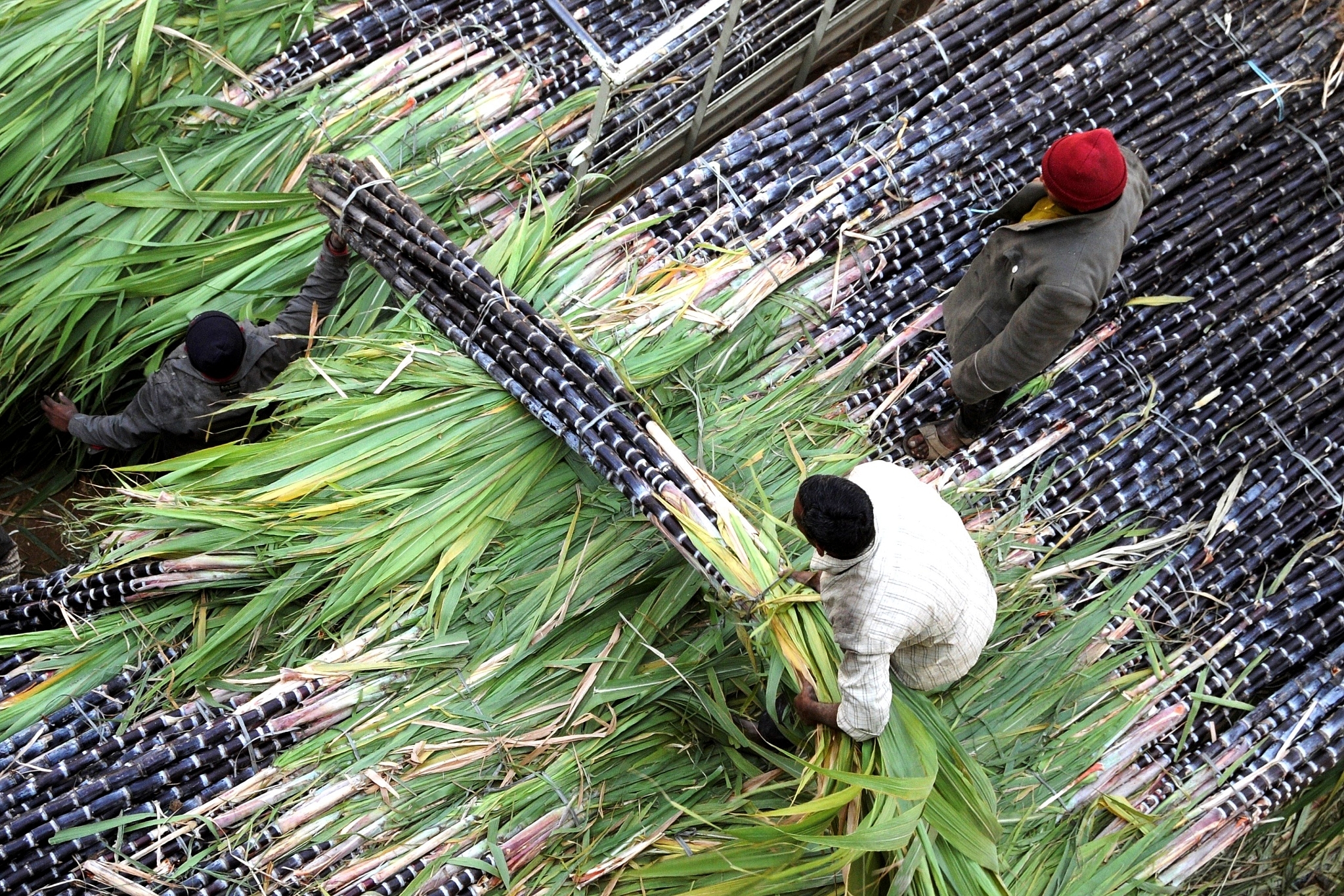News Brief
Government Mulls Hiking Price Of Ethanol For Use As Fuel, But Sugar Mills Lack Production Capacity
- The Centre is mulling to hike the price that oil marketing companies offer to sugar mills for producing ethanol to be mixed with petrol.
- But sugar mills are facing problems in producing ethanol.

Mounting sugarcane arrears are a major concern in western UP. (Getty)
As the sugarcane crushing season picks up momentum this month, sugar mills in the country have something to cheer.
The Centre is mulling to hike the price that oil marketing companies (OMCs) offer to sugar mills for producing ethanol to be mixed with petrol.
A Cabinet note has been prepared by the Ministry for Oil and Gas to provide a three per cent to six per cent hike in the prices of ethanol from last year, depending on the production methods.
For the 2019-20 season that ended September, the Centre fixed the price of ethanol produced from B-heavy molasses, a high-yielding method, at Rs 54.27 a liter.
The price for deriving ethanol directly from sugarcane juice and sugar syrup was fixed at Rs 59.48, while for the material got from C-heavy molasses it was Rs 43.75.
According to the National Biofuels Policy, the Government plans to achieve 10 per cent ethanol blending in petrol by 2022. But the sugar industry’s ethanol production has been able to meet only 8.5 per cent of the demand for the blending.
The policy has also set a 20 per cent blending target by 2030 that will help the sugar industry gain from the government in the long-term.
According to government officials, sugar mills will first be asked to meet 15 per cent ethanol production target once the 10 per cent target is achieved before they can look at reaching the 20 per cent target.
In order to meet the ethanol demand, sugar mills have to divert part of their sugar production to ethanol by directly converting 100 per cent sugar juice. This will mean that the country’s sugar production could get reduced by at least five million tonnes.
This should not worry the mills or consumers as Indian sugar production far exceeds domestic demand. In fact, the Centre is having to spend thousands of crores of rupees in offering incentives to export sugar.
During the 2019-20 fiscal, the Narendra Modi government spent over Rs 6,250 crore in offering incentives to sugar mills to export the commodity.
The sugar sector is aware of the fact that its future is in producing ethanol in view of surging demand for fuel in the country and the government looking to substitute huge imports of crude oil through such measures as encouraging ethanol blending.
Brazil is a fine example of how the sugarcane industry can benefit. Nearly three-fourths of cars in the South American nation run on ethanol-blended fuel.
Sugar mills switch between producing ethanol and sugar depending on the prices they expect to rule in the global market.
On the other hand, ethanol blending also helps farmers get good prices for the sugarcane they cultivate. More importantly, they can expect timely payment of their dues from the mills.
Reports say that over Rs 8,400 crore is due to farmers from sugar mills across the country for the cane they have supplied to them.
Sugar mills have their own problems in producing ethanol. For example, Maharashtra mills have a target to produce 1.04 billion liters of ethanol during the current season that began this month.
But mills face problems such as lack of capacity and most of the mills are unable to get loans from banks because of their unhealthy balance sheets.
Some of the mills have now sought time, while the National Federation of Cooperative Sugar Factories is trying to help units in the cooperative sector in Maharashtra by arranging for banks to recover the loan installments from oil market companies.
This will be done through a tripartite arrangement wherein mills will supply the companies the ethanol and they, in turn, will remit the returns to the banks.
As the sugar sector tries to find a balance amidst a flurry of these developments, the Government hopes that it will soon find a solution to dependence on imports to meet fuel needs.
Support Swarajya's 50 Ground Reports Project & Sponsor A Story
Every general election Swarajya does a 50 ground reports project.
Aimed only at serious readers and those who appreciate the nuances of political undercurrents, the project provides a sense of India's electoral landscape. As you know, these reports are produced after considerable investment of travel, time and effort on the ground.
This time too we've kicked off the project in style and have covered over 30 constituencies already. If you're someone who appreciates such work and have enjoyed our coverage please consider sponsoring a ground report for just Rs 2999 to Rs 19,999 - it goes a long way in helping us produce more quality reportage.
You can also back this project by becoming a subscriber for as little as Rs 999 - so do click on this links and choose a plan that suits you and back us.
Click below to contribute.
Latest